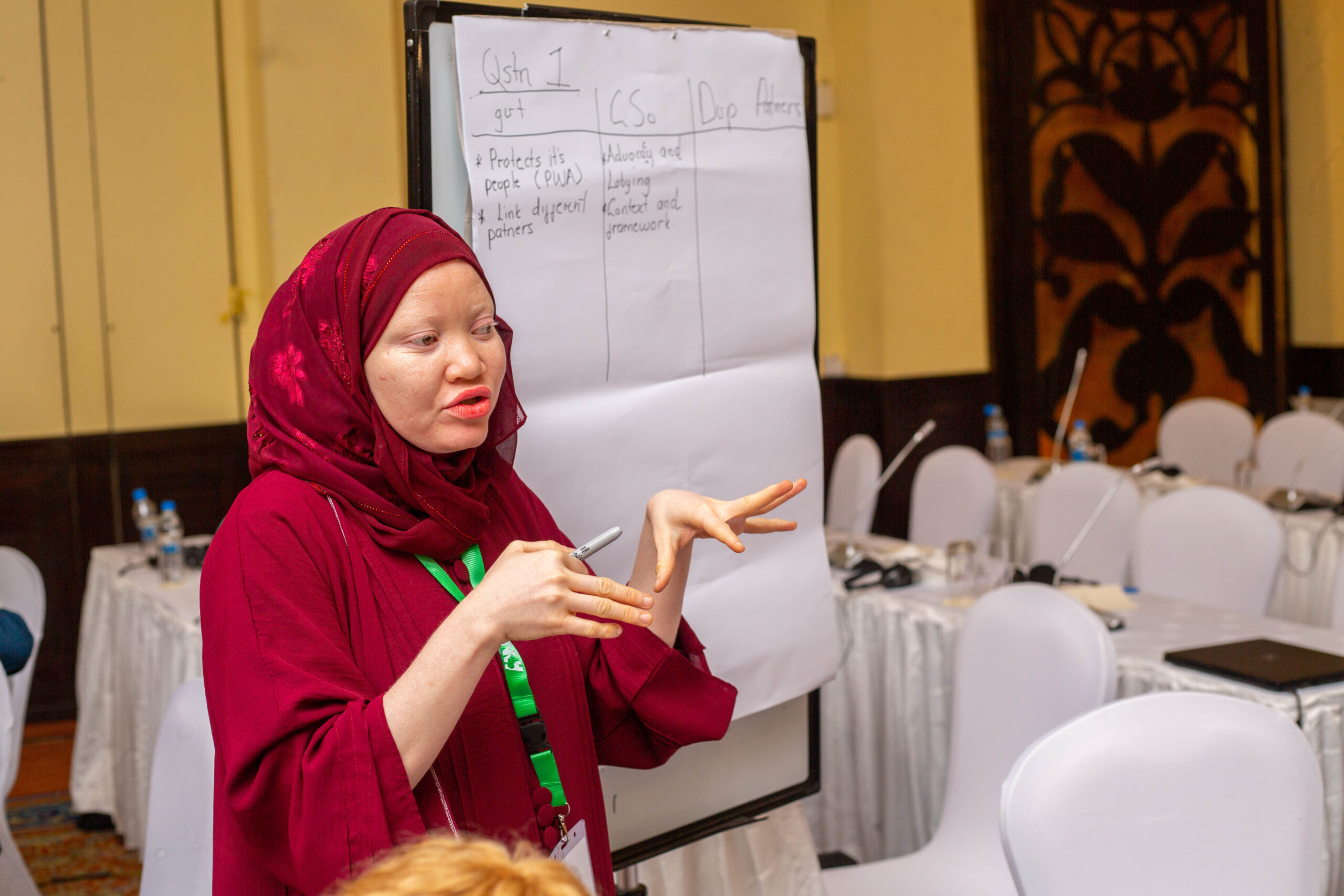Empowering Albinism Advocates as Human Rights Defenders
The United Nations Independent Expert on Albinism categorically states that albinism group leaders must self-identify and be recognized as human rights defenders to avail themselves of effective protection. Echoing the UN Special Rapporteur on human rights defenders, without this recognition, human rights defenders with albinism remain unaware of their rights as defenders, do not have access to peer or other support networks, and do not receive protection from the State, civil society, or the international community.

AAN’s Proactive Response
A Groundbreaking Survey: AAN’s 2022 survey across 48 African nations revealed that 70% of albinism groups are actively involved in human rights-based advocacy, including measures to address ritual attacks, highlighting the crucial role these groups play in challenging perceptions and defending the rights of people with albinism.
Engagement with the AU and UN: AAN, in collaboration with human rights defenders of people with albinism, has been instrumental in shaping the discourse at the AU and UN through human rights reporting. We promote implementation of the African Union Plan of Action on Albinism (2021 – 2031) at the country level (through National Action Plans on Albinism), in collaboration with governments, community organizations, and international partners. While the AU Plan of Action on Albinism does not use the term human rights defenders, all four of its pillars list priority actions to support entities representing people with albinism. These entities also have responsibilities in the plan to report and gather data. Their engagement with government and regional entities such as the AU also serve as indicators of success in the Plan.
Toolkit for Champions: To aid human rights defenders of people with albinism, AAN has crafted a comprehensive yet user-friendly mini-advocacy toolkit on how to engage international and regional mechanisms.
Training and Development: AAN provides capacity development, strategic advice, and advocacy support for human rights defenders with albinism. We enhance their efficacy with global and regional entities for more impactful and persuasive advocacy at international bodies, such as the African Union and United Nations.
AAN’s training initiatives have engaged 53 groups from 16 African countries, with most training sessions conducted virtually. Read more about AAN’s 2023 Learning Forum.
A High Demand: AAN has conducted over 30 training workshops and forums designed to bolster the capabilities of human rights defenders championing the cause of albinism. Consistently, participants have ranked these fora as highly impactful. However, given the vast demand and resource constraints, only a fraction of the potential beneficiaries has been reached. Our training has reached only 48 organizations in our survey. Moreover, beyond the survey, there remains 177 albinism groups in Africa that we are unable to reach due to limited resources.
Opportunity
The path forward is clear: to truly champion the rights of people with albinism, we must continue to empower, educate, and support their advocates to identify and be recognized as human rights defenders. The journey has begun, but there’s much ground to cover.
Resources
- AAN’s Report on Human Rights Defenders and Albinism in Africa, submitted to the UN
- AAN’s Mini Advocacy Toolkit for Human Rights Defenders of People with Albinism in Africa
- Report from the UN Expert on albinism on human rights defenders
- Watch: Human Rights Defenders with Albinism (UN Expert on Albinism)
- AAN’s Learning Forums